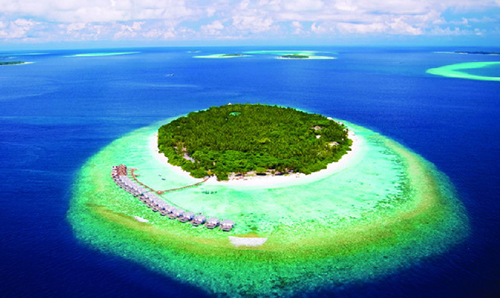MEP Design Challenges for Isolated Island Projects
Meinhardt have provided MEP design services for a number of Maldives resorts, including Niyama, a luxury resort located a 40 minute seaplane ride from the capital, Male.

For isolated island projects, such as Niyama, Meinhardt have to deliver not only top quality MEP design to support the facilities and guest accommodation of luxury international 5 star resorts, but also, more critically, have to develop a robust MEP infrastructure, including central power and fresh water generation, sewage treatment, bulk water and diesel storage and services distribution networks across multiple islands and extending several kilometres.
Isolated island projects present unique challenges for M&E design:
- There is no fresh water source or power grid available.
- Power generation costs take a much higher proportion of the resort’s running costs so energy efficiency and conservation is doubly important.
- Islands are remote, so equipment breakdowns can be a major problem for operations.
- Available land for MEP systems is normally extremely limited. The majority of the island would be given over to public spaces.
- The staff (ratio of 5 per guest room) will all live on the island, so effectively the design is for two hotels, for the employed staff, and for the paying guests.
- Technical expertise can be difficult to find

Meinhardt’s approach is based on the underlying philosophy of selecting reliable cost effective solutions and fundamental to this are the life cycle costing studies which we do at the early design stage, in order to establish a suitable mix of energy and water saving systems for the resort.
The key criteria for such developments include:
- Siting and configuration of the M&E plant rooms and spaces, for efficiencies, but also considering environmental impact.
- Diesel genset capacity selection to maximize efficiency and energy recovery from the gensets.
- Measures to reduce energy consumption
- Measures to reduce fresh water consumption
- Use of renewable energy
Niyama Maldives comprises two islands, linked by a bridge, and provides extensive shoreline and over the water guest bungalows, each with their own private pool and looking out onto the Indian Ocean. The resort also includes an underwater nightclub, located 500m out in the ocean.
At Niyama, power generation was by diesel gensets, and fresh water production was by sea water RO plant. The following energy and water conservation measures were also successfully implemented:
- Selection of gensets to match the island’s load profile, to maximize generator operational efficiency.
- Heat recovery from the gensets. Heat from the exhaust gases generated steam for the laundry. Heat from the energy casings was used to generate hot water for both and staff accommodation.
- Excess heat from the gensets was then cooled via sea water cooling systems
- Careful design of the hot water distribution networks, to ensure rapid delivery of water to the end user.
- Rain water harvesting from the larger roof areas
- Recycling of final effluent from the sewage treatment plant, for use as flush water at WCs and irrigation.
- Multiple zonal sub water meters, to monitor for water leaks.
- LED lighting
For future projects of this kind, Meinhardt can analyse a wide range of energy saving measures to determine the most workable solutions, additional to the above, including:
- Absorption chillers supplied by heat from the gensets
- Power generation by solar PV – roof mounted or floating platforms on the sea
- Wind power
- Demand control lighting and ventilation strategies
- Sea water cooling of air conditioning condenser units
- Sea water for WC flushing
 John Mugford
John Mugford
Associate Director
